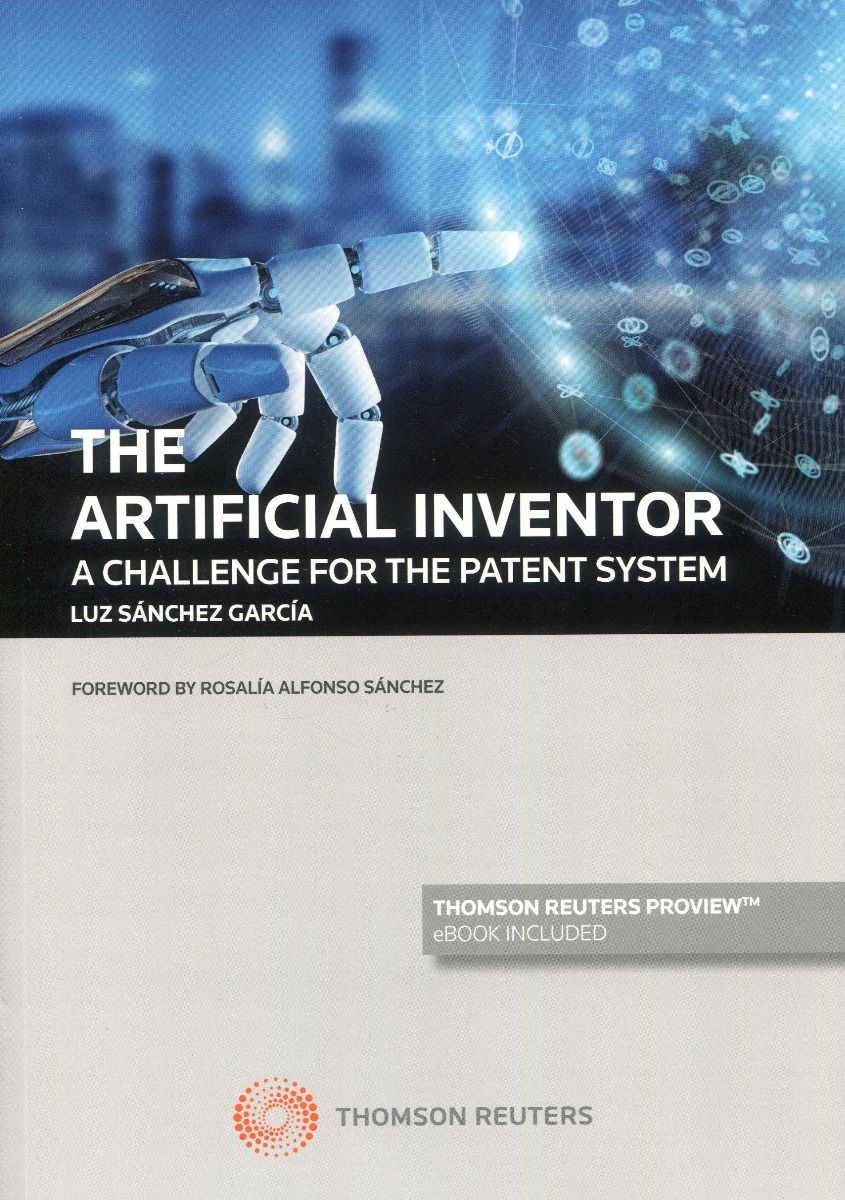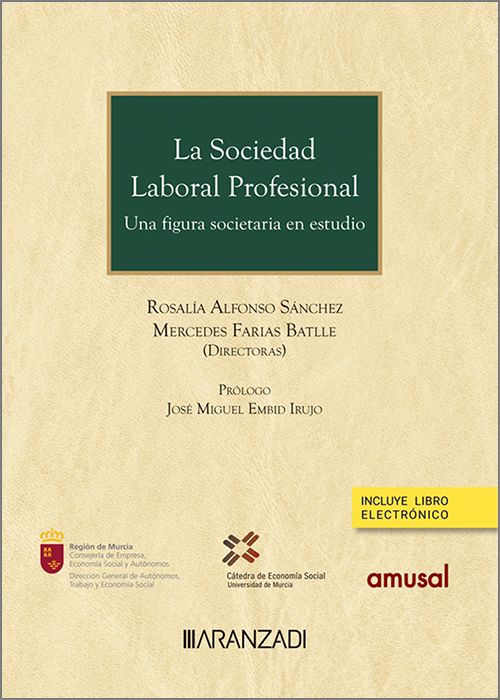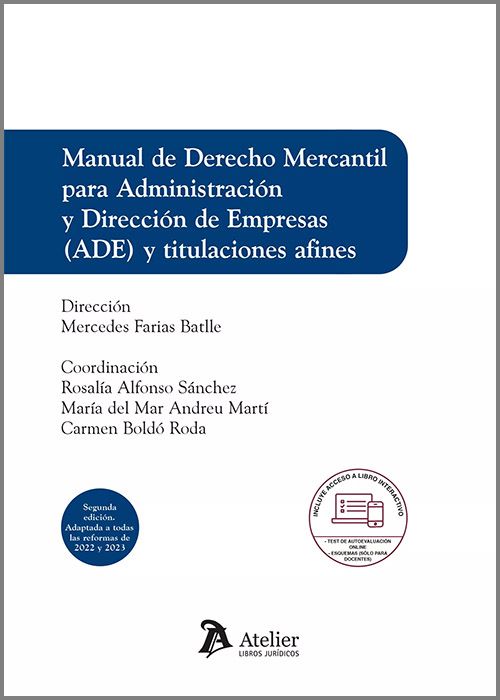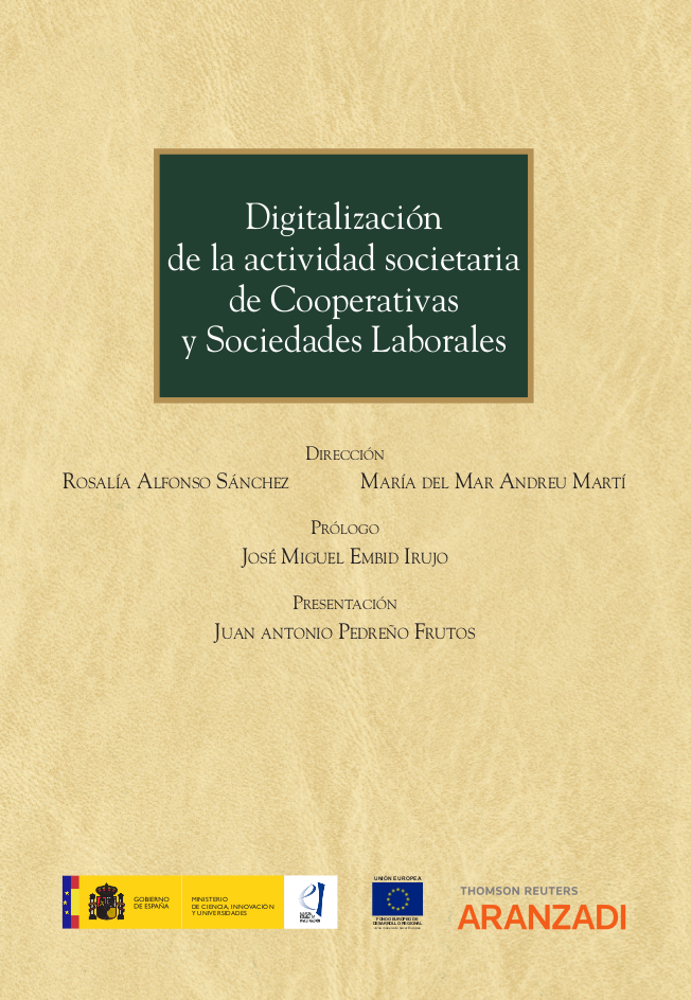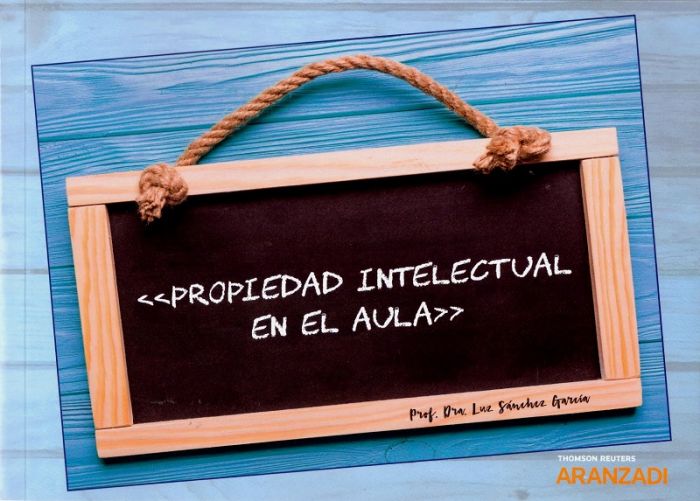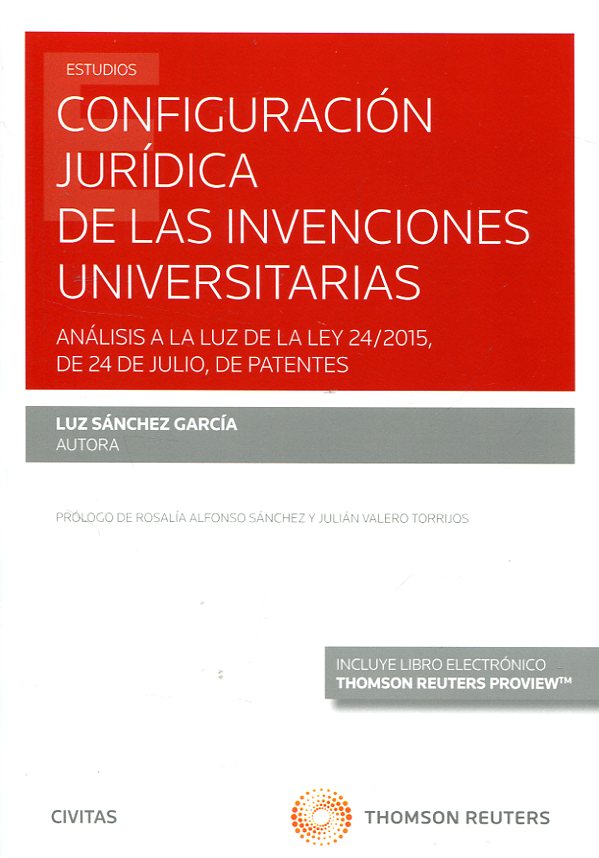The artificial inventor
a challenge for the patent system
- ISBN: 9788413909042
- Editorial: Editorial Aranzadi
- Fecha de la edición: 2021
- Lugar de la edición: Pamplona. España
- Encuadernación: Rústica
- Medidas: 24 cm
- Nº Pág.: 188
- Idiomas: Inglés

The book contains a rigorous and well-documented approach to the new concept of “Artificial inventor”. From a Patent Law perspective, it raises all the legal problems that the classic treatment of inventions entails when they are produced by artificial entities, and it proposes an innovative framework for its adequate protection. The Artificial Inventor is, indeed, a groundbreaking work; a challenge for the Patent System courageously addressed, and it stands as an essential reference.
FIRST CHAPTER
AN APPROACH TO ARTIFICIAL INTELLIGENCE AND ROBOTICS
I.An approach to artificial intelligence
1.Artificial intelligence in data
2.Background and Evolution of AI as a Scientific Discipline
3.Conceptual delimitation and branches of AI
3.1.Systems that think like humans (cognitive approach)
3.2.Systems that think rationally (rational approach)
3.3.Systems that act like humans (Turing Test approach)
3.4.Systems that act rationally (rational agent approach)
II.Regulatory developments on robotics
1.Robotics as a category of AI
1.1.Robot concept
1.2.Comparative panorama of the robotics sector
A.Robotics in South Korea
B.Robotics in Japan
C.Robotics in the United States
2.Civil law and robotics. Towards a european regulation
2.1.The steps already taken
2.2.The European Parliament Resolution of 16 February 2017
A.On the need to regulate the new technological reality
B.On the principles and limits of the regulation of the new technological reality
C.About Research and Innovation in robotics
D.About ethical principles for robotics
E.Robotics and personal data protection
F.Especially, on the Civil liability of robots
SECOND CHAPTER
THE ARTIFICIAL INTELLIGENT AGENTS (AIAs)
I.Introduction
II.Notion of «Artificial Intelligent Agent» (AIA)
1.About the Artificial Intelligent agent
2.On the conscience [and consciousness] of the AIA
3.About autonomous decision making. The lack of will and «sentience» of AIA
III.Attempting a legal characterization of AIAS
1.The condition of person
2.The legal personality of companies
3.The legal treatment of animals
4.The «subjectivation» of things
5.Slave status
IV.The so-called «Electronic Personality» of AIAS
V.The AIA: between subject and instrument. Its consideration as a Performance Imputation Center (PIC)
THIRD CHAPTER
THE ARTIFICIAL INVENTOR
I.Introduction
II.On whether inventions generated by AIA deserve to be protected by patent
III.A reference: the AIA as author
IV.The AIA as an inventor
V.The AIA as «artificial inventor»
FOURTH CHAPTER
INVENTIONS GENERATED BY AN AIA. A PROPOSAL FOR A LEGAL REGIME
I.Introduction
II.The «invention’s conception contribution test» («ICC Test»)
1.Concept and raison d’être of the ICC Test
2.Procedural aspects of the ICC Test
3.Artificial inventor certificate
III.Inventions generated by AIAs. Its patentability
1.The AIA invention as patentable subject matter
1.1.Exclusions from and exceptions to patentability
1.2.On the positive patentability requirements –novelty, inventive step and industrial application–
2.Special attention to the «inventive step» in inventions generated by an AIA. The «expert system in the art»
IV.Ownership of the inventions generated by an AIA
1.Previous identification of the participants in the conception of the invention
2.Classification of inventions generated by an AIA. An ownership regime proposal
2.1.Inventions belonging to the creator of the AIA
2.2.Inventions belonging to the AIA user
2.3.Inventions belonging to the AIA
V.The Registry of AIAs
1.The rationale of a Registry of AIAs
2.Proposal of a legal regime for a Registry of AIAs
2.1.Concept and objective delimitation of the Registry of AIAs
2.2.Mandatory registration of the AIA
2.3.Characteristic features of the Registry of AIAs
A.The Registry of AIAs as a legal registry
B.Real folio system and electronic support
C.Territorial scope of the Registry of AIAs
D.Effectiveness of the registration
VI.A fund for the management of inventions generated by an AIA
1.The fund for the management of inventions and its design
2.Endowment and destination of the fund for the management of inventions
3.Proof of the fund for the management of inventions
BIBLIOGRAPHY
RELEVANT DOCUMENTS
GLOSSARY OF TERMS AND EXPRESSIONS

